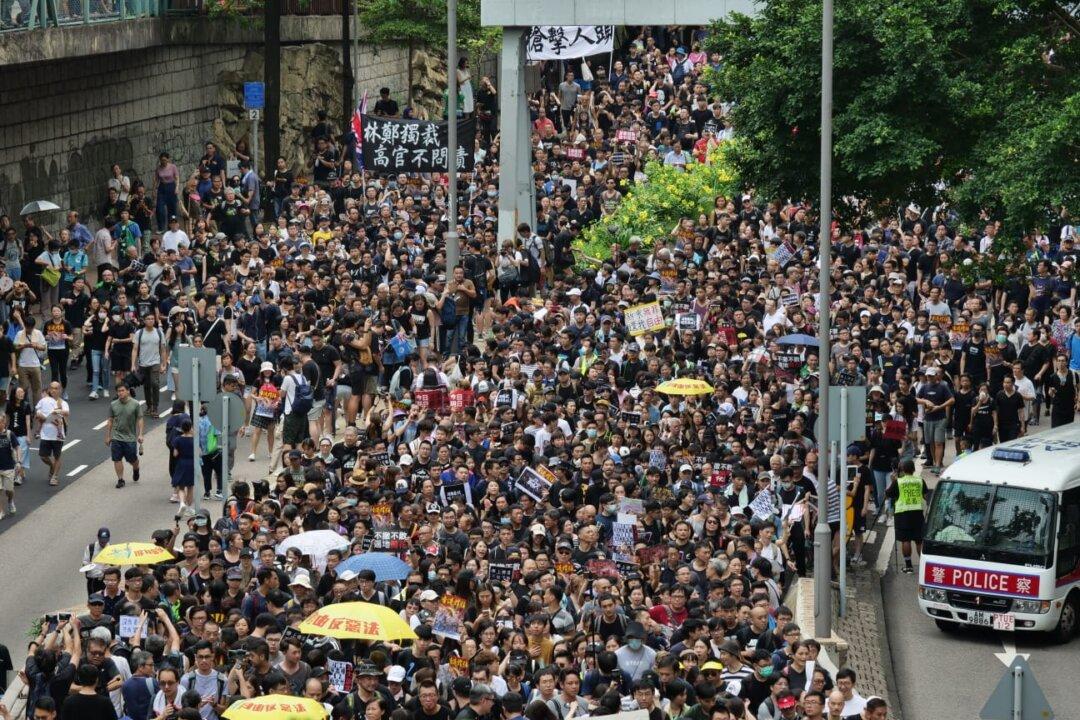Hundreds of thousands of Hongkongers joined the latest protest on July 7 to demand that the city government scrap a controversial extradition bill.
The march, however, differed from past ones, in that, rather than being primarily directed against the government, the protesters sought to gain the attention of mainland Chinese tourists. Pamphlets explaining Hongkongers’ concerns about the extradition bill were distributed along the march route to onlookers.





